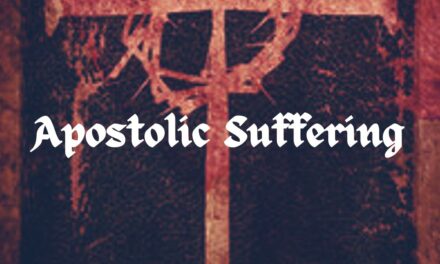As members of on order we entrust ourselves to Christ above all and ask Him to transform us into a people committed to justice and mercy in the context of supportive community. We engage in action-reflection, shared spiritual disciplines, and spiritual formation.
A Glimpse of History
InnerCHANGE’s emergence as an order in the early 1990s was more a process of evolution than one of intentional architecture. As long ago as 1988, we began to speak of ourselves as an order. But it wasn’t until 1994, in reflecting upon our shared experiences, much of them painful, that God seemed to confirm order as a structural and thematic direction. Even then, our pursuit of order continued to be as much thrust upon us as sought. In that respect, InnerCHANGE’s history recalls Martin Luther’s description of his own legacy: “No good work comes about by our own wisdom, it begins in dire necessity.”
Order Defined Selectively
“Order” is a powerful word connoting mission, mystery, discipline, stated values, and longevity. On the other hand, it is a word with ominous undertones that raises eyebrows in some circles, particularly Protestant ones. Negatively, order conjures images of unsmiling severity, authoritarianism, and elitism.
Partly because of this mixed review, partly because orders tend to be overwhelmingly identified with the Catholic Church, Evangelicals, for the most part, have not explored orders as a wineskin for missionary enterprise until recently. However, we believe the word “order” should be read structurally rather than theologically, that it can significantly advance the cause of Christ for Catholics and Protestants alike.
As a structure for missions among the poor, orders nurture pursuers of justice and mercy in the context of supportive community. They also aid in preventing missionary “burnout” and cynicism by forming their members for an entire lifetime of service. Certainly, the historical record suggests that orders have had an impact on missions and formed a quantity of Christian leaders disproportionate to their numbers.
In establishing InnerCHANGE as an order, we seek a structure that has endured for centuries. We are also em-bracing a way of life that can sustain the heartbeat of our three currents — not merely a vehicle that advances the missionary current.
Nevertheless, our use of the word “order” calls for careful explanation. In InnerCHANGE we are selective in our use of the various aspects of order. For example, though we draw inspiration from the monastic orders, we believe ourselves to be in the tradition of the missionary orders. We are especially indebted to the legacy of the Francis-cans and Dominicans and their pursuit of the apostolic way of life. More specifically, for us, order includes:
- Living as missionaries in supportive community with one another and the poor
- Prizing the company of Jesus above the mission itself
- Impassioned by a God-given vision to see the Kingdom advance among the poor
- Pursuing our calling to minister as a way of life, not simply a task
- Ably led (not merely managed) by servant leaders with spiritual authority
- Inspired by clearly articulated values and a marked theology of the poor
- Dedicated to lives of simplicity, humility, and purity through obedience to our seven commitments or “vows”
- Sustained and renewed by a contemplative spirituality
- Acting prophetically in the Body of Christ and the wider world
- Formed intentionally as a body, not just as individuals with separate career aspirations
- Living lives of symbolic significance
- Secured for the ministry long-term by “gentle walls” of commitment
- Growing in missionary skill and formation through an intentional mentoring process that develops our people as our most valuable resource
This is not a total list of how we function as an order. Neither are we fully developed in every feature named above. This is as much descriptive of where we are going as where we are.
Community
Perhaps the most striking and fully developed element of InnerCHANGE as an order is our community. In fact, it isn’t an overstatement to say that we were drawn into order by our experience in community.
As well, we were drawn into community by need. In living and ministering among the poor we find ourselves steering into a lot of heavy emotional traffic. With two thirds of the world poor and only a fraction of Christian missionaries living incarnationally among them, we discover ourselves to be Good Samaritans on roads lined with the beaten down. The potential for “burnout”, or what Ray Bakke has described as “emotional bleeding from a million kaleidoscopic relationships,” is real for missionaries among the poor, particularly in urban settings.
In fact, by 1993, some of us who had been ministering five years or more, began to get spiritually winded. The passion that had initially compelled us to “get down off our donkey” had not grown cold—more accurately, the energy to pursue that conviction had ebbed away. In effect, the battle within grew louder than the battle without, and we discovered ourselves to be the fallen of the Good Samaritan parable lying at the side of the road in need.
Community among our members took on added significance when we began to stop to attend to one another. Community with our neighbors, many of whom were not believers, went to greater depth when we opened our-selves to receive from them. In fact we found out how profoundly we had been received by our neighbors when we were, ourselves, by the side of the road.

